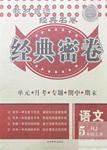题目内容
Clarissa looked out of the taxi window at the wet road. It was still raining. She was looking forward to getting home after a busy and tiring week in Italy.
The taxi stopped outside the terminal and Clarissa got out. While she was finding some money in her purse, the driver took out her luggage. She picked up her suitcase and entered the terminal building. The British airways check—in desk was near the entrance. After checking in her luggage, she went to buy some magazines. Then she went through passport control and the security check.
After waiting in line with  other passengers, Clarissa walked down the corridor and onto the plane. Her seat was next to the window. While the plane was taking off, she closed her eyes, but when the plane was in the air, she began to relax. She pressed the button at the side of the seat, lay back and opened her eyes again.
other passengers, Clarissa walked down the corridor and onto the plane. Her seat was next to the window. While the plane was taking off, she closed her eyes, but when the plane was in the air, she began to relax. She pressed the button at the side of the seat, lay back and opened her eyes again.
Pin! The sound of the bell woke Clarissa from her dreams. “Ladies and gentlemen, we are now approaching Heathrow. Will you fasten your seatbelts and extinguish all your cigarettes.”
When the plane landed and c ame to a standstill, Clarissa saw that outside the sun was shining and the sky was clear. It was going to be a perfect day.
ame to a standstill, Clarissa saw that outside the sun was shining and the sky was clear. It was going to be a perfect day.
【小题1】 When in Italy Clarissa was ______.
| A.airsick | B.sick | C.seasick | D.homesick |
a. She waited in line for a while. b. She passed through the airport control.
c. She took a taxi to catch her plane.
d. She bought some magazines to read in the plane.
e.
 She went through the check - in desk.
She went through the check - in desk. f. she went through the security-check door. g. She went aboard the plane.
| A.c,e,d,b,f,a,g | B.c,f,d,e,a,b,g | C.d,e,f,b,g,e,a | D.a,c,d,e,b,f,g |
A. glad B. anxious C. nervous D. relax
 ed
ed 【小题4】 We know from the text ______.
| A.before the plane took off, smoking was not allowed. |
| B.just before landing, people were asked not to smoke. |
| C.when the plane took off and landed, smoking was not allowed. |
D.smokin g was not allowed all the way to Heathrow. g was not allowed all the way to Heathrow. |
【小题1】D【小题1】A【小题1】C【小题1】D
解析

 作业辅导系列答案
作业辅导系列答案 同步学典一课多练系列答案
同步学典一课多练系列答案 经典密卷系列答案
经典密卷系列答案 金牌课堂练系列答案
金牌课堂练系列答案One of the world's richest men has taken a close interest in one of man's most basic functions: visiting the toilet.Bill Gates’ charitable organization, the Bill and Melinda Gates Foundation, is looking for inventors to design the loo of the future, which, they hope, would improve sanitation for millions of people around the world.
So, what's wrong with the traditional flush toilet? Firstly, it wastes a huge amount of potential drinking water.Secondly, they are more likely to cause pollution.This is a real problem in many areas of the developing world, where, according to United Nations’ estimates, unsafe sanitation causes half of all hospitalizations.Younger people are particularly at risk.Illnesses which cause diarrhea are responsible for the deaths of about 1.5 million children a year.Finally, standard lavatories simply aren't practical in remote areas.
The challenge set by Bill Gates was to come up with a latrine which works without running water, electricity or aseptic tank.It also needed to operate for less than 5 cents.28 designs were displayed at the recent event of the Toilet Fair in Seattle, USA.Among them was one which turned human waste into electricity using microwaves, another which converted human waste into charcoal, and yet another which used urine for flushing.
But the winner was a solar-powered design which generated hydrogen gas and electricity.The team from the California Institute of Technology(CIT)picked up a prize of $ 100,000.
But clearly Bill Gates doesn't feel he's flushing money down the toilet.After the Seattle event he said, "We couldn't be happier with the response we've gotten," Gates has even promised $370 million more to the future toilet project.They hope to field test more prototypes over the next three years.
【小题1】Why is Bill Gates paying people to invent new toilets?
| A.Because he wants to test people's sense of creativity. |
| B.Because he wants to improve sanitation for many people. |
| C.Because he thinks the traditional ones are out of fashion. |
| D.Because he can't design this kind of things himself. |
| A.They waste too much water. | B.They might cause diseases. |
| C.They are not always practical. | D.They are too complicated to use. |
| A.loo | B.sanitation | C.diarrhea | D.prototype |
| A.can change human waste into electricity |
| B.can turn human waste into charcoal |
| C.can produce power with solar energy |
| D.can use urine for flushing |
| A.showing off their wealth | B.angry with their working conditions |
| C.wasting money for nothing | D.expressing their great determination |